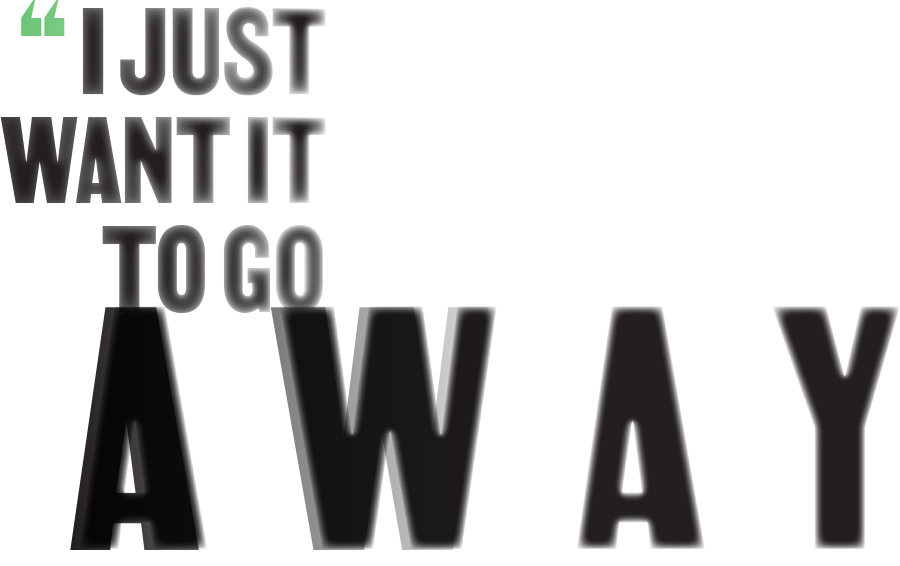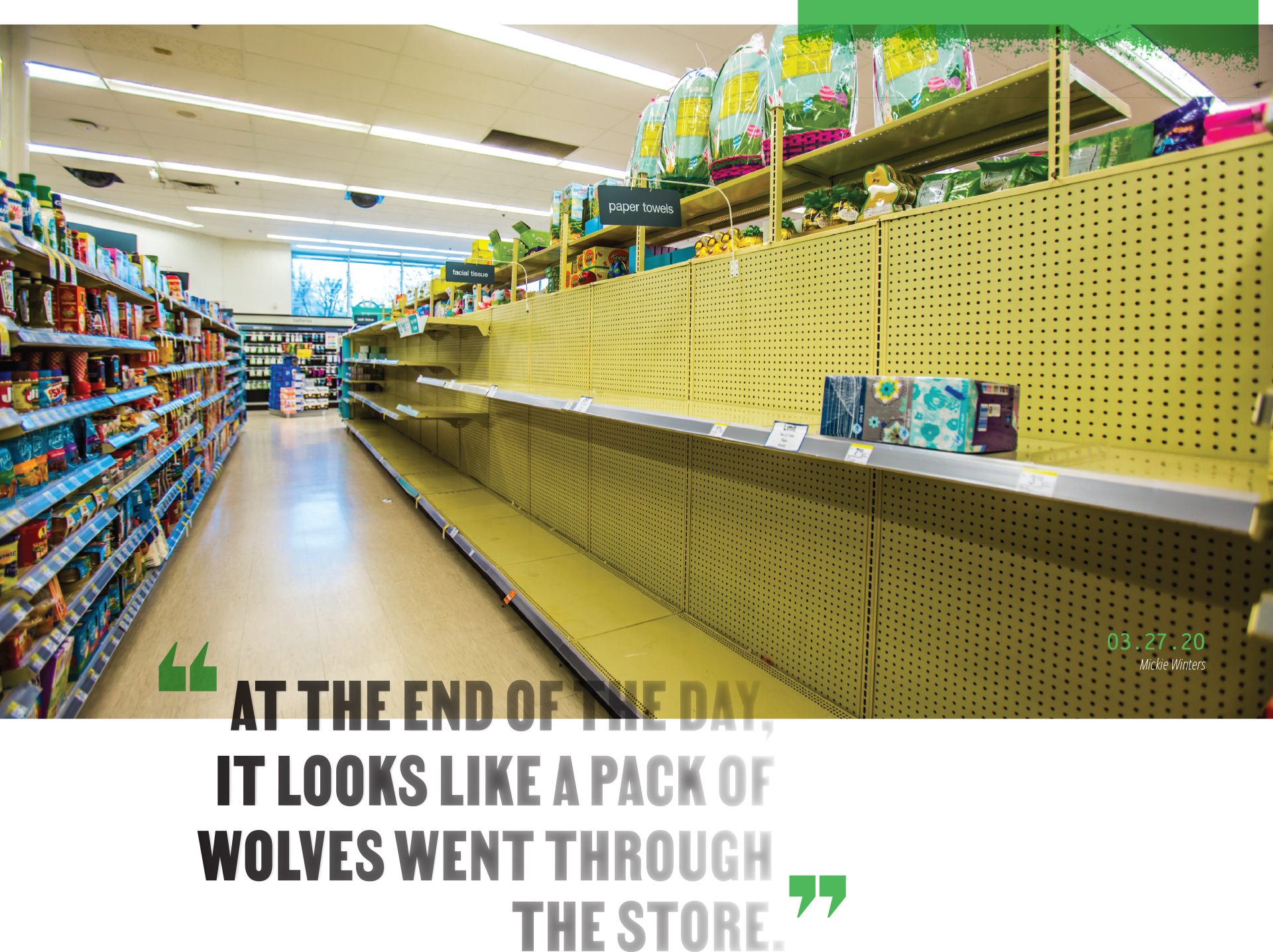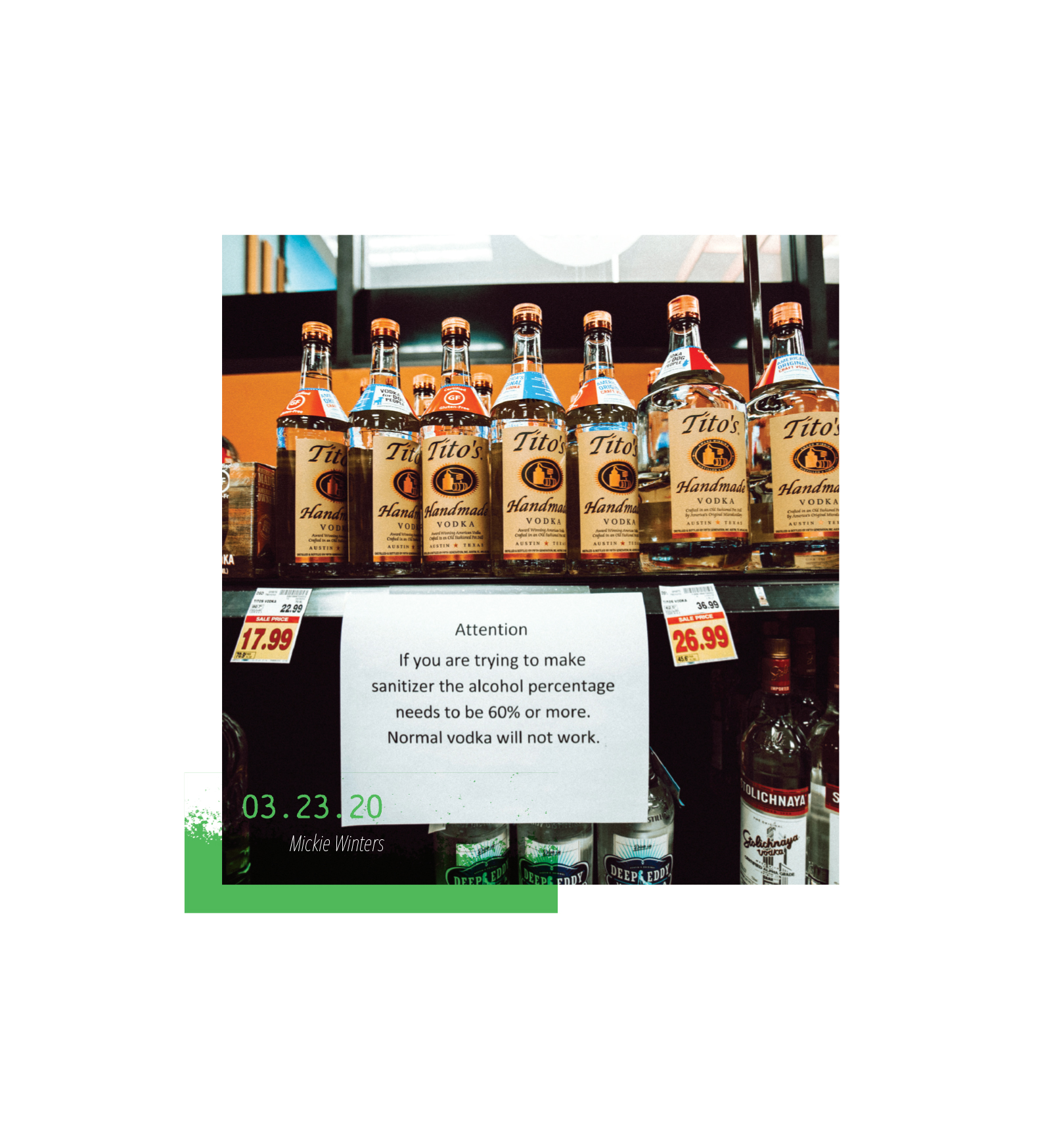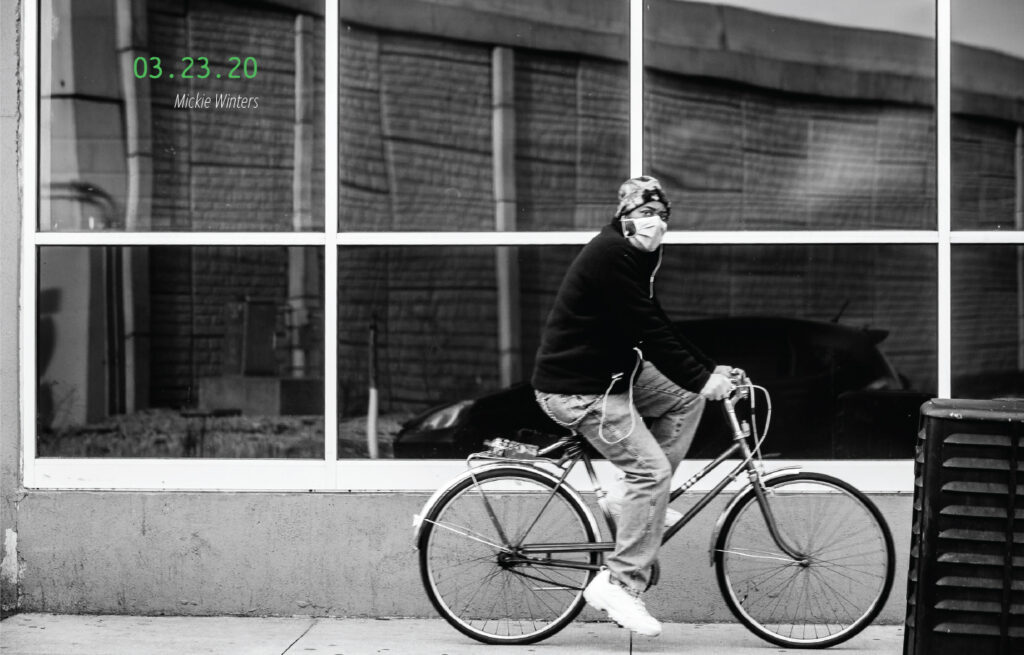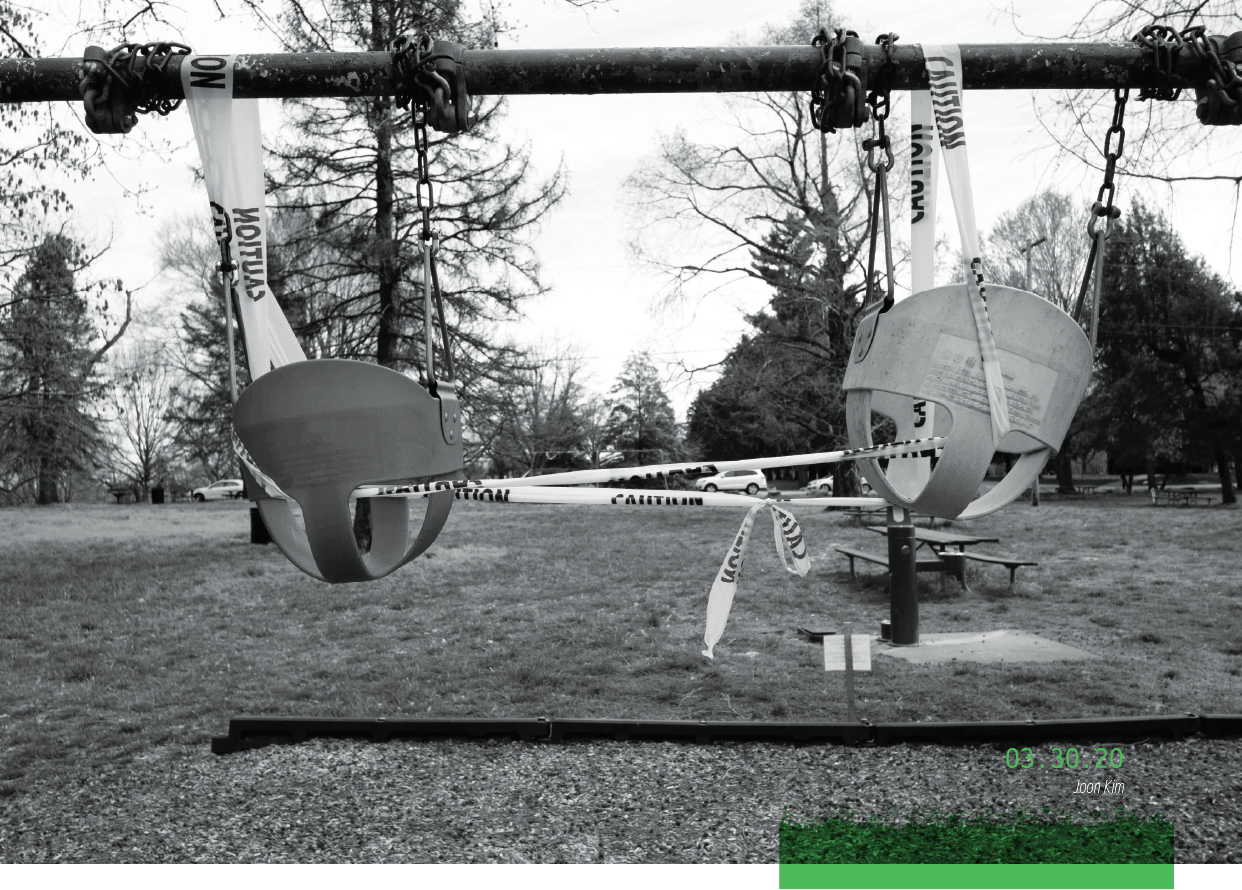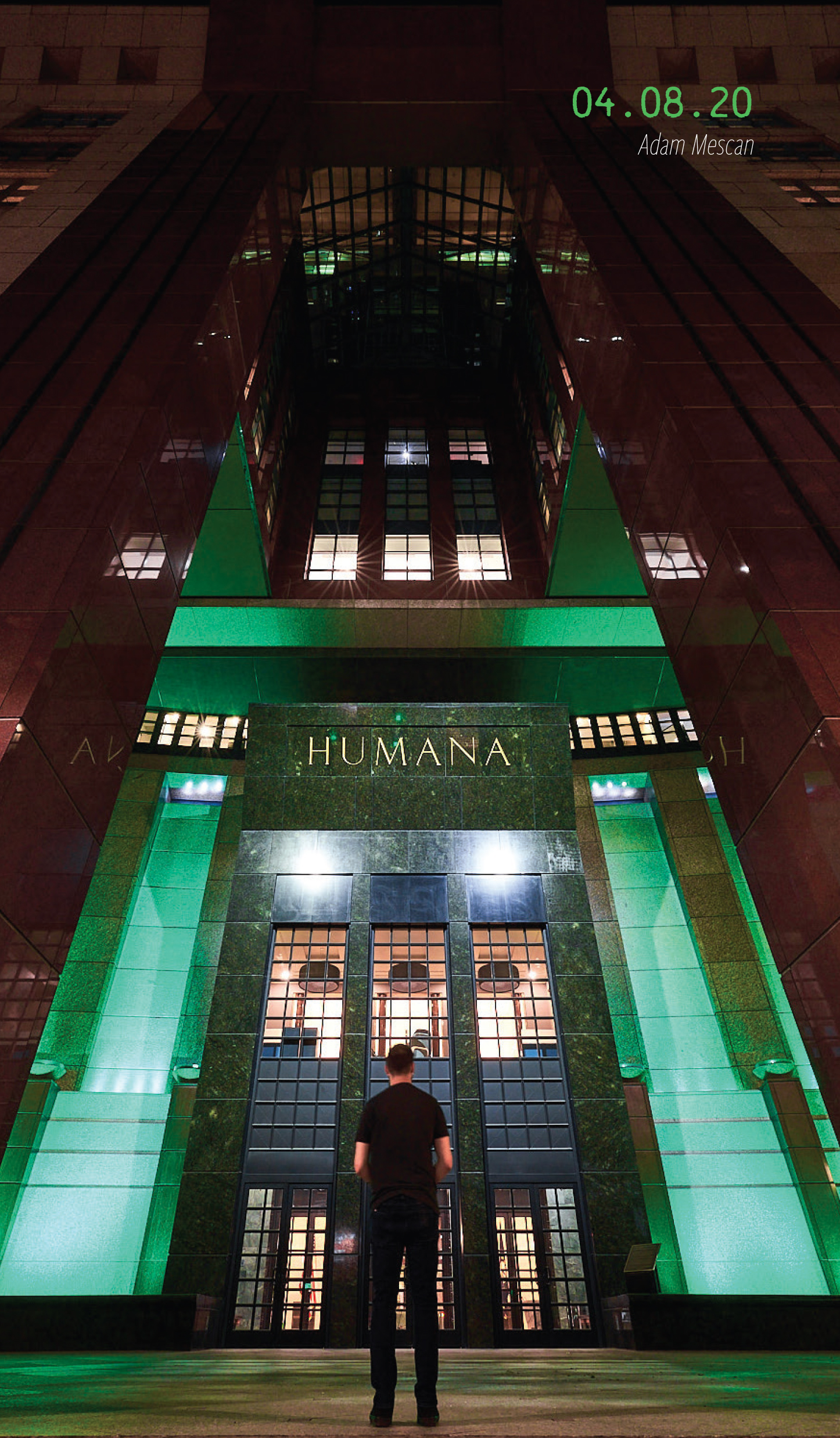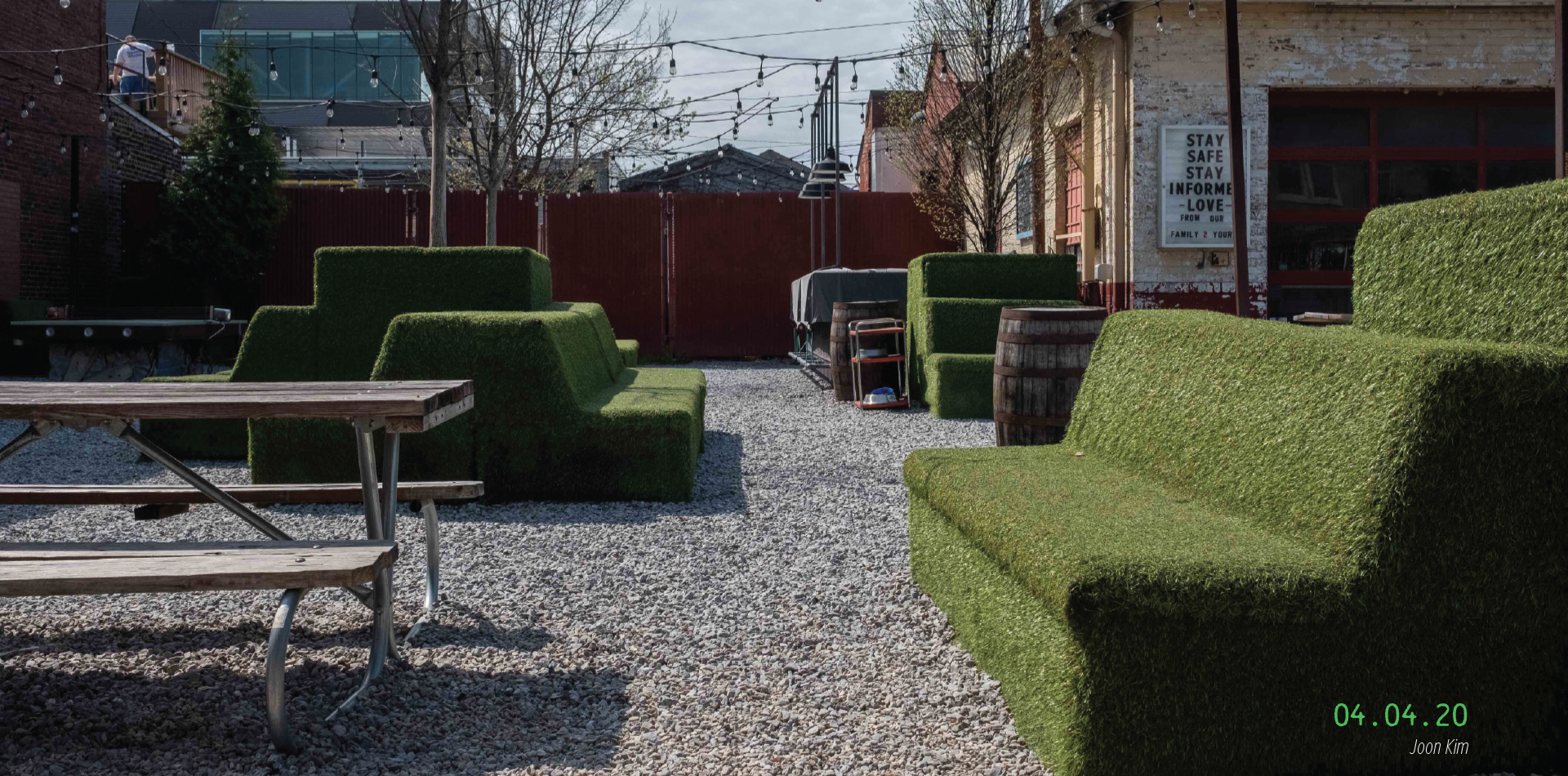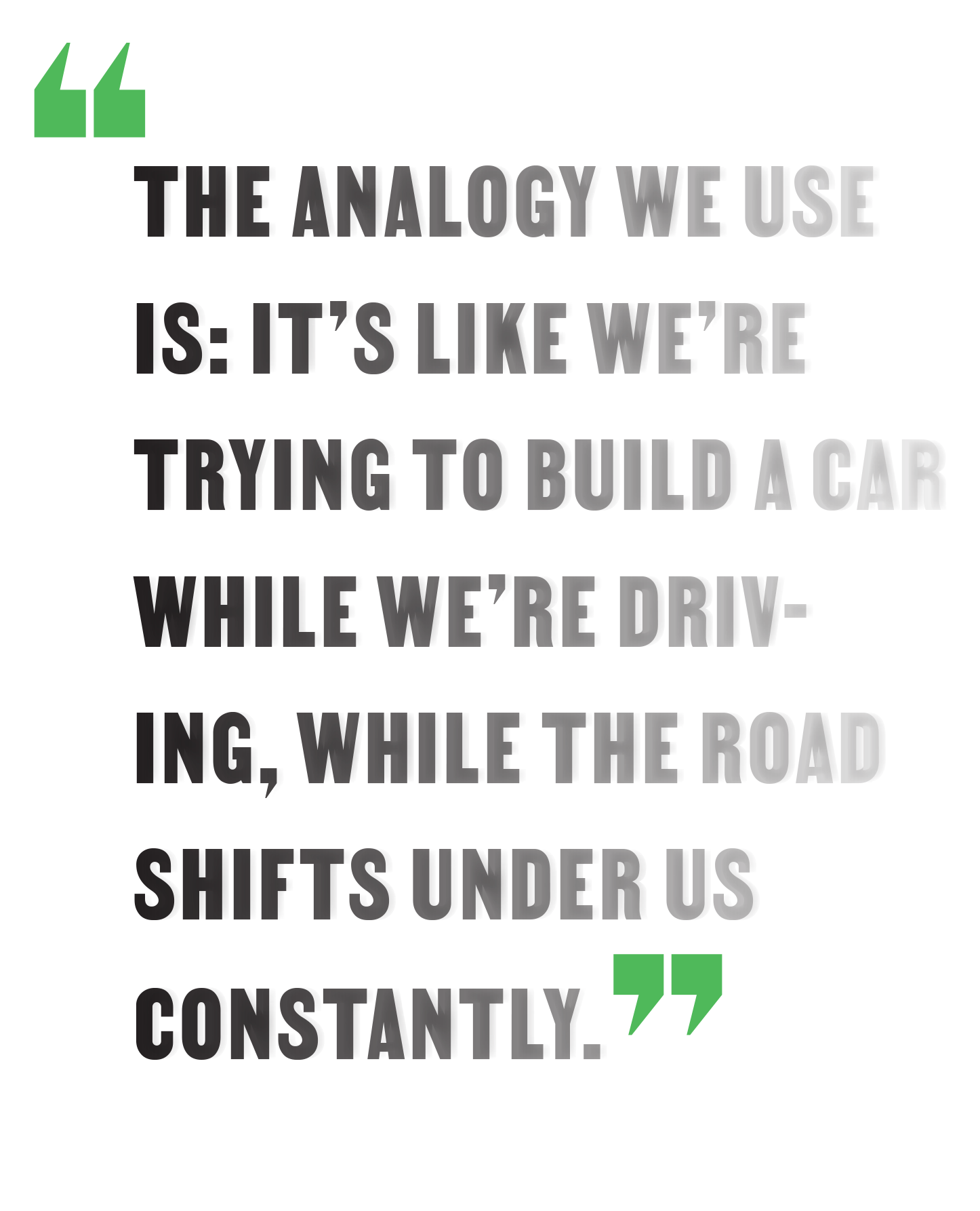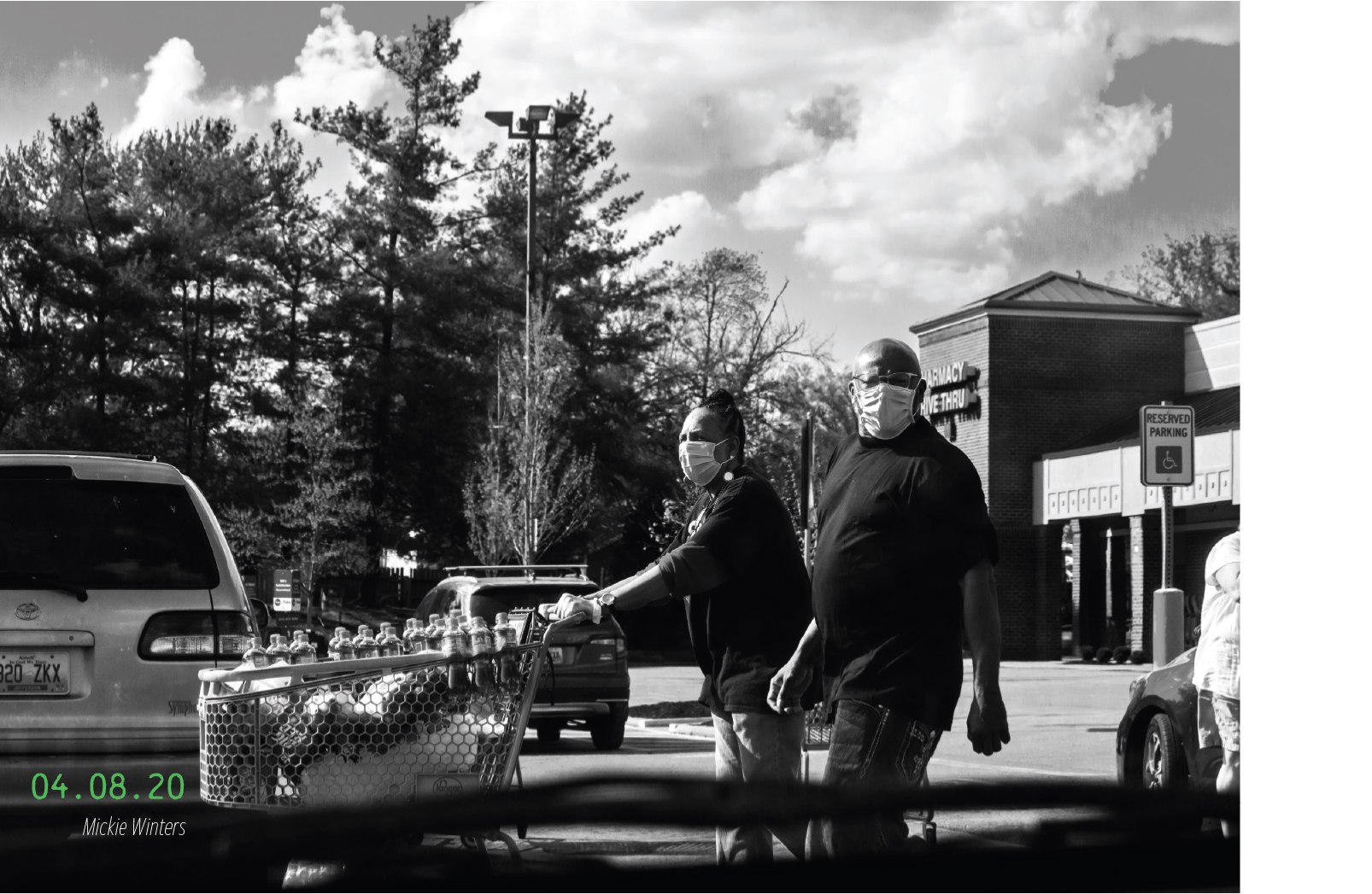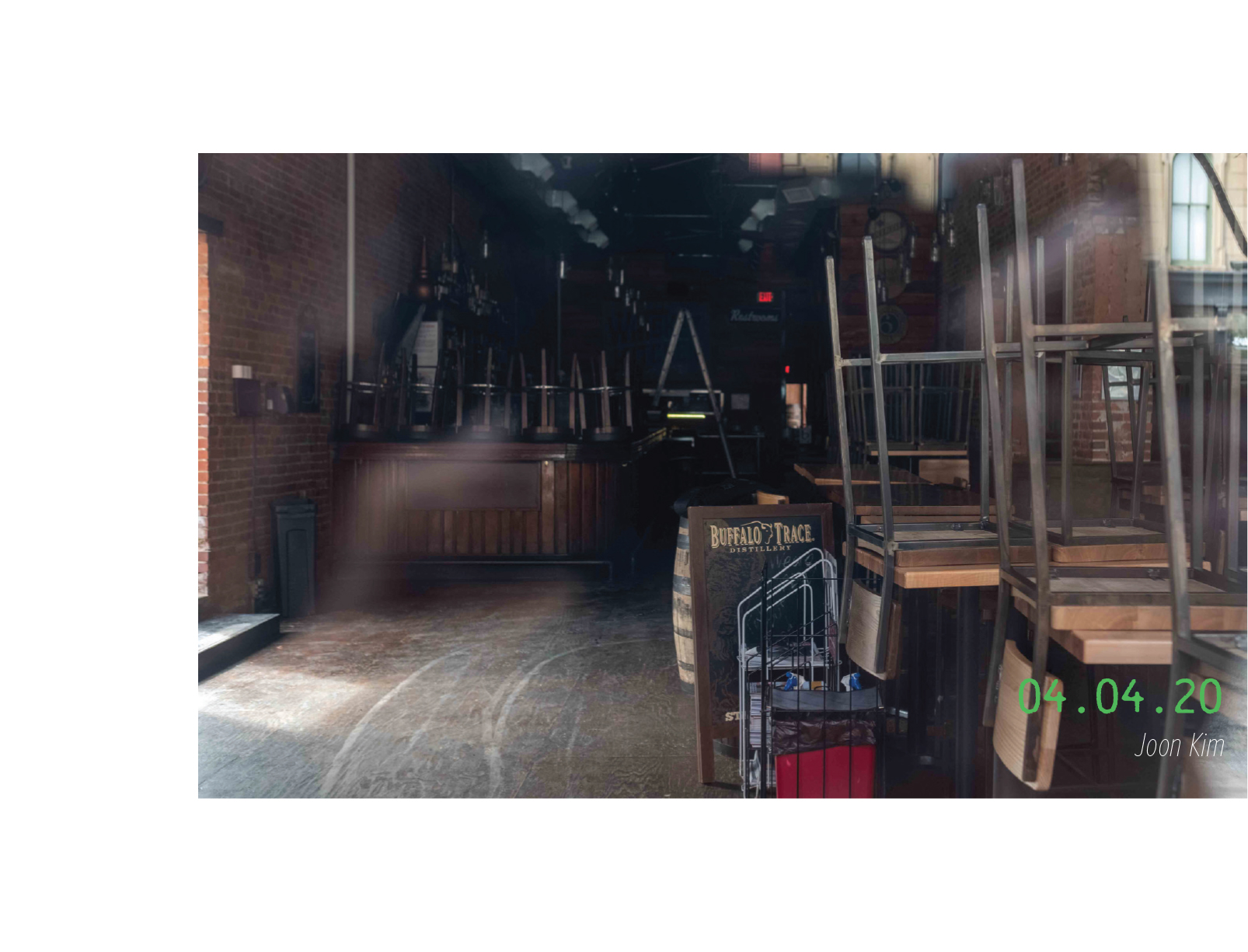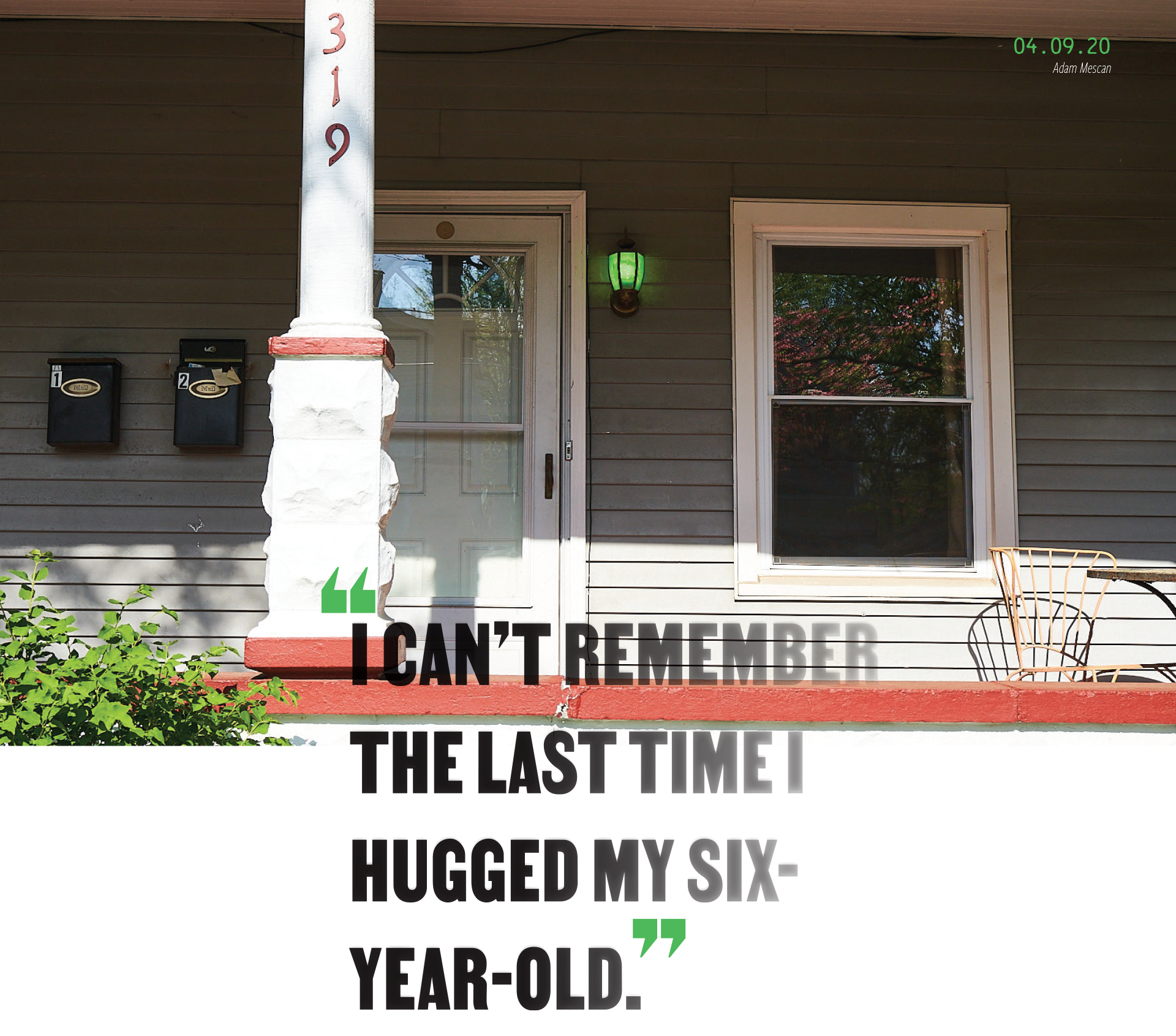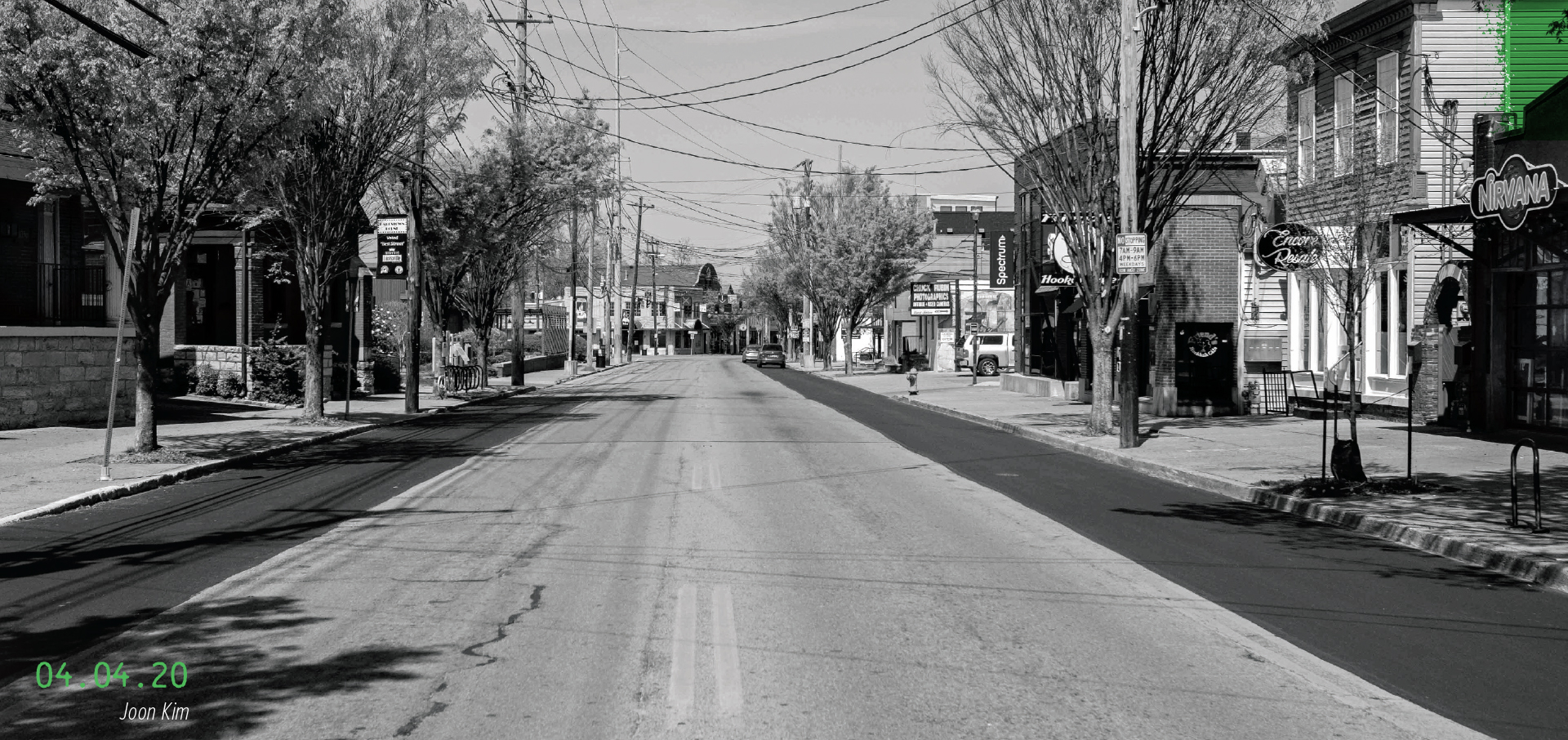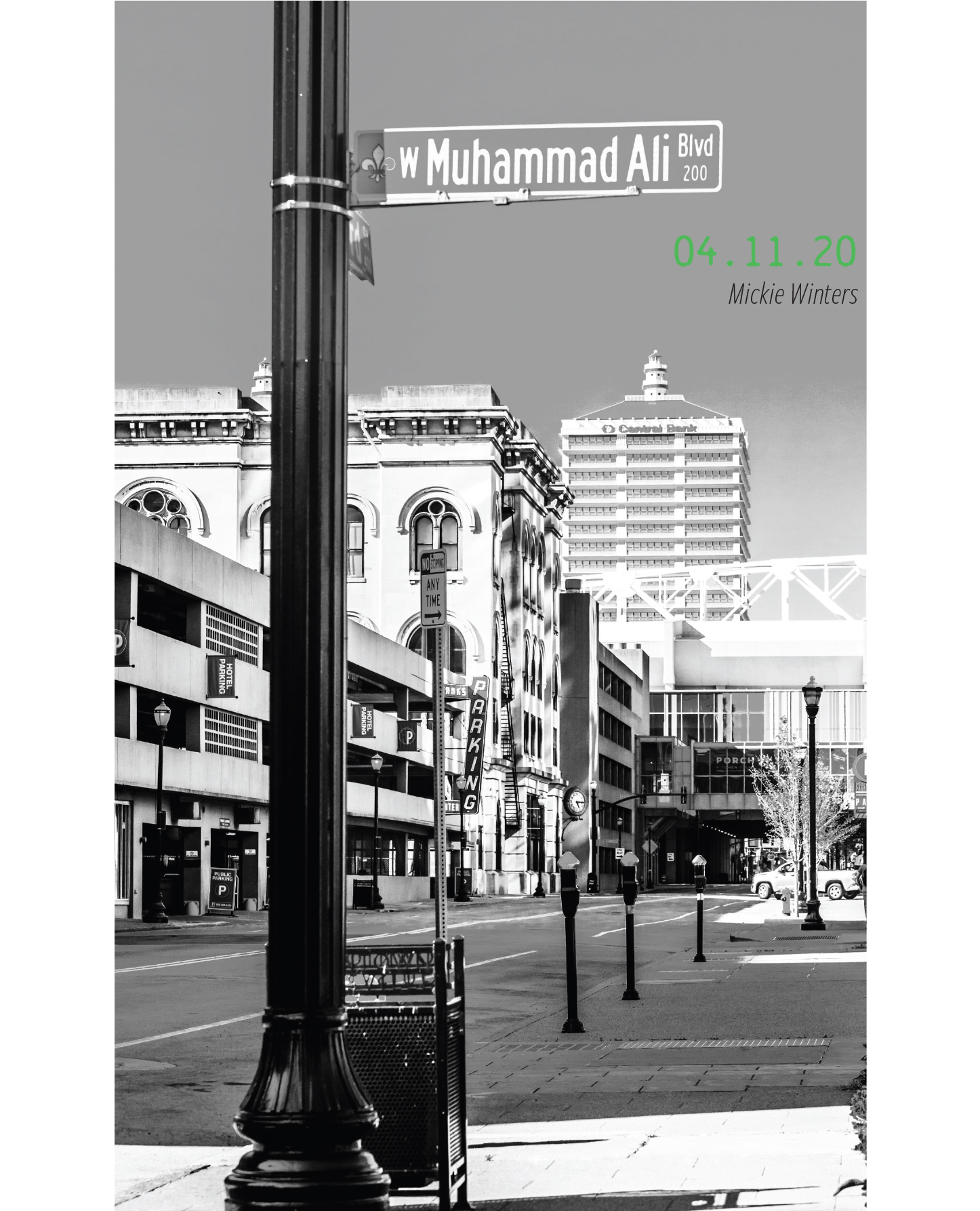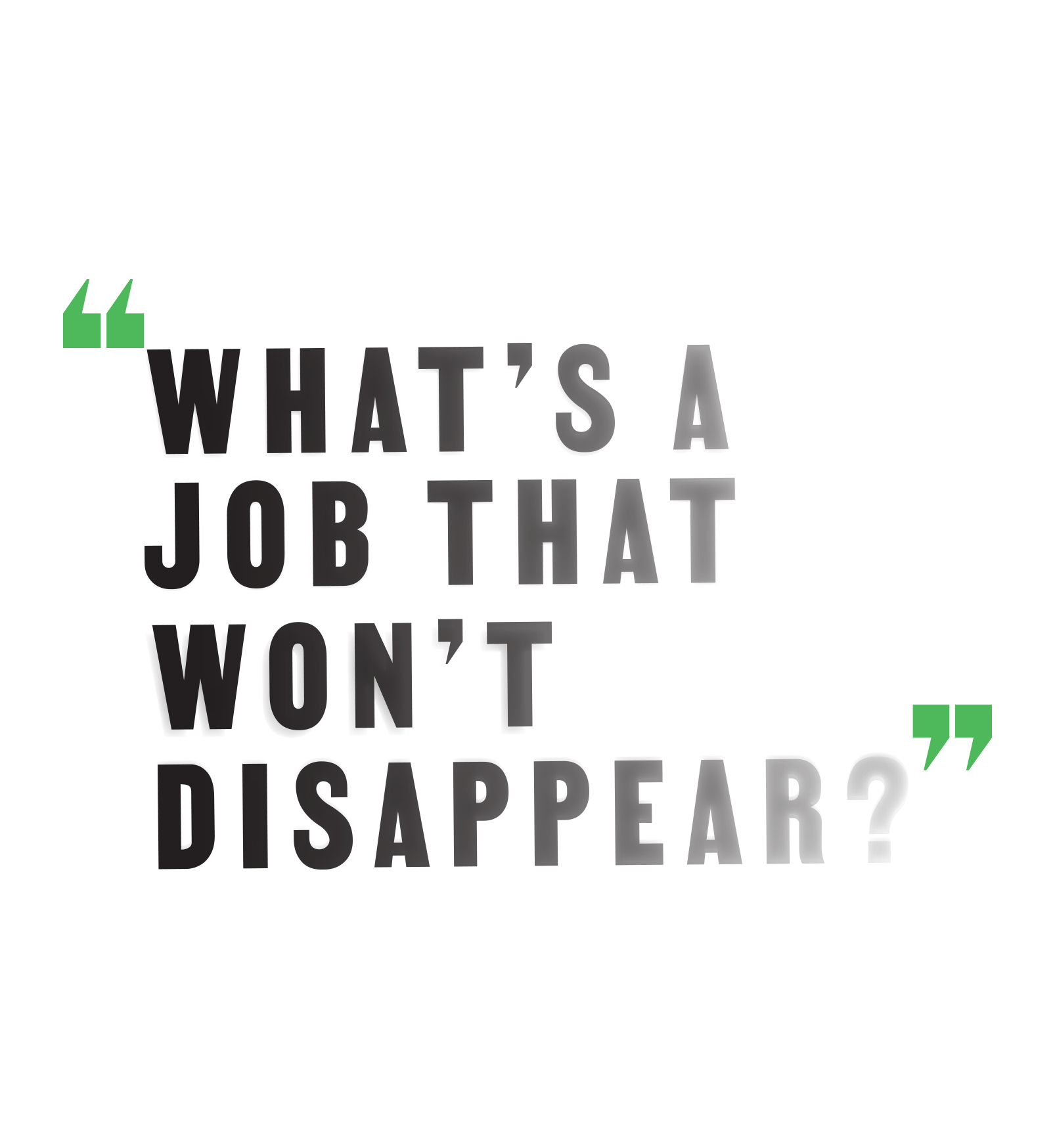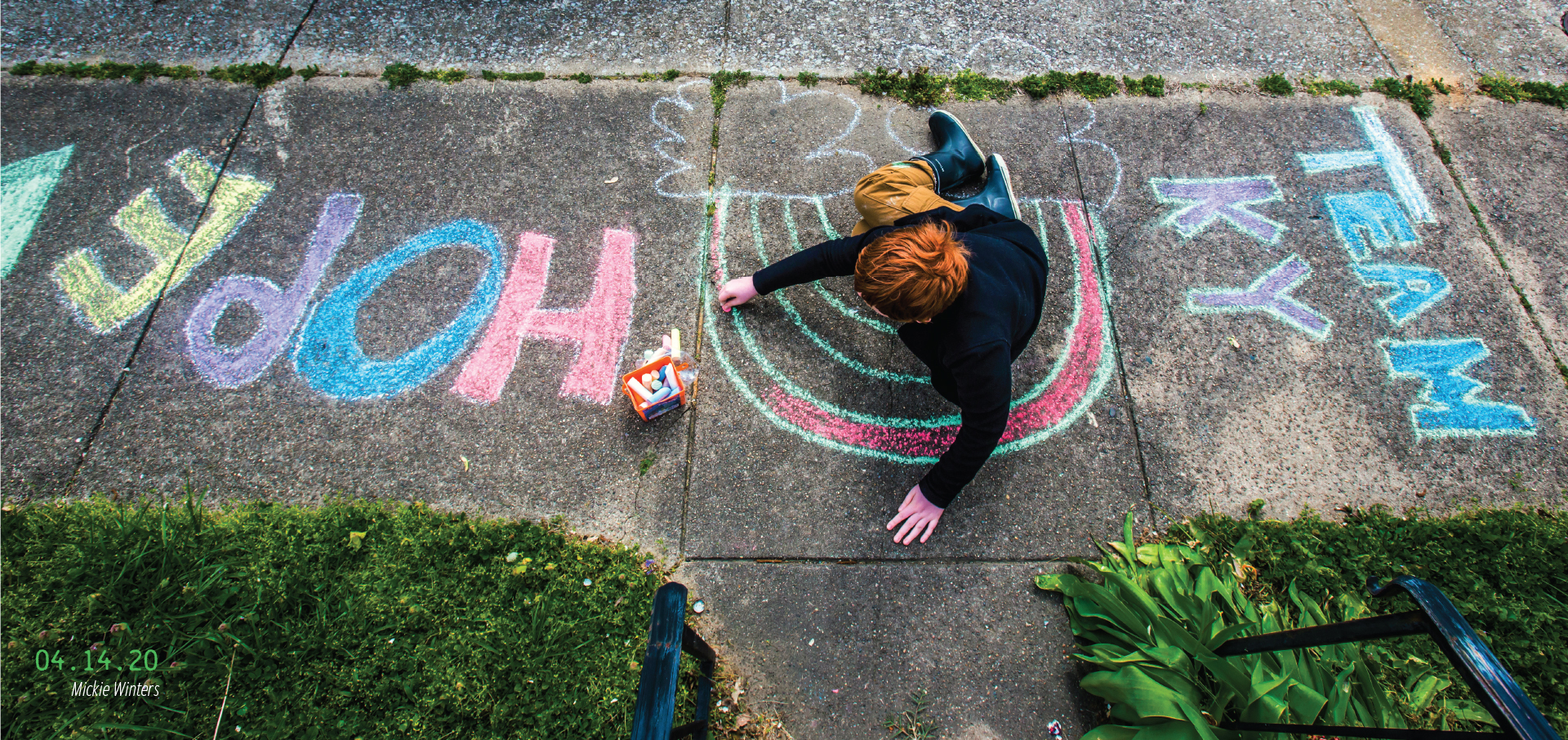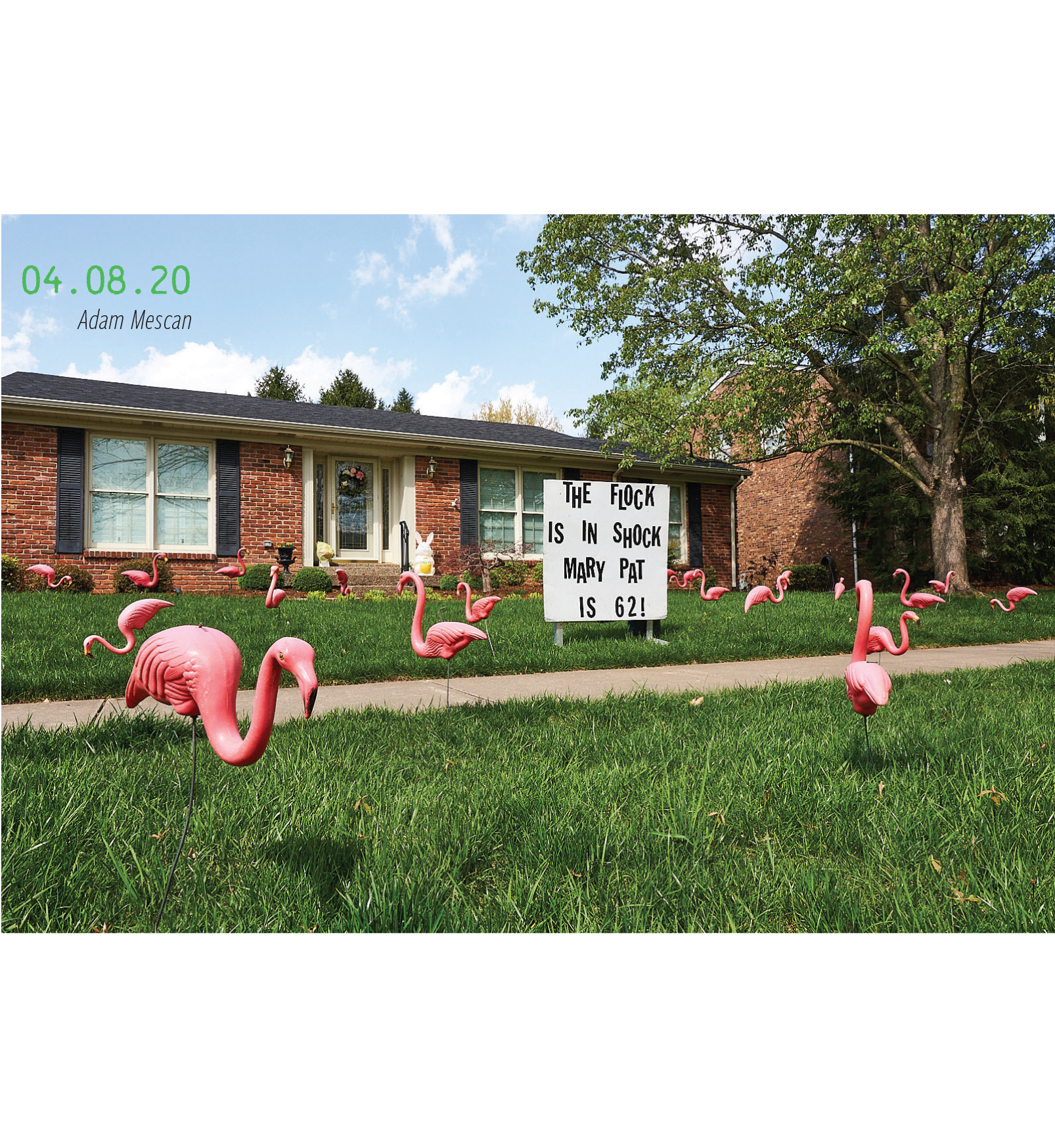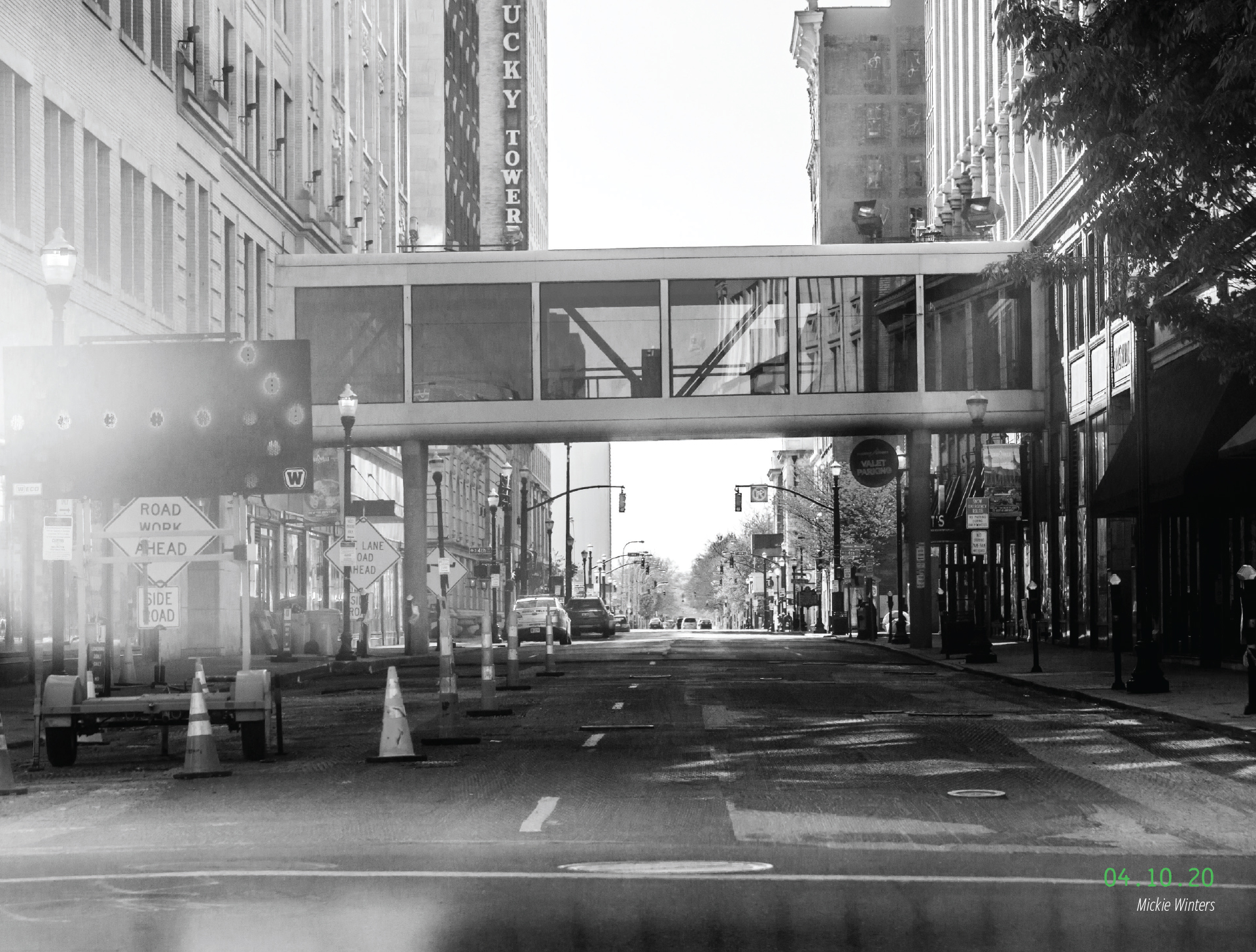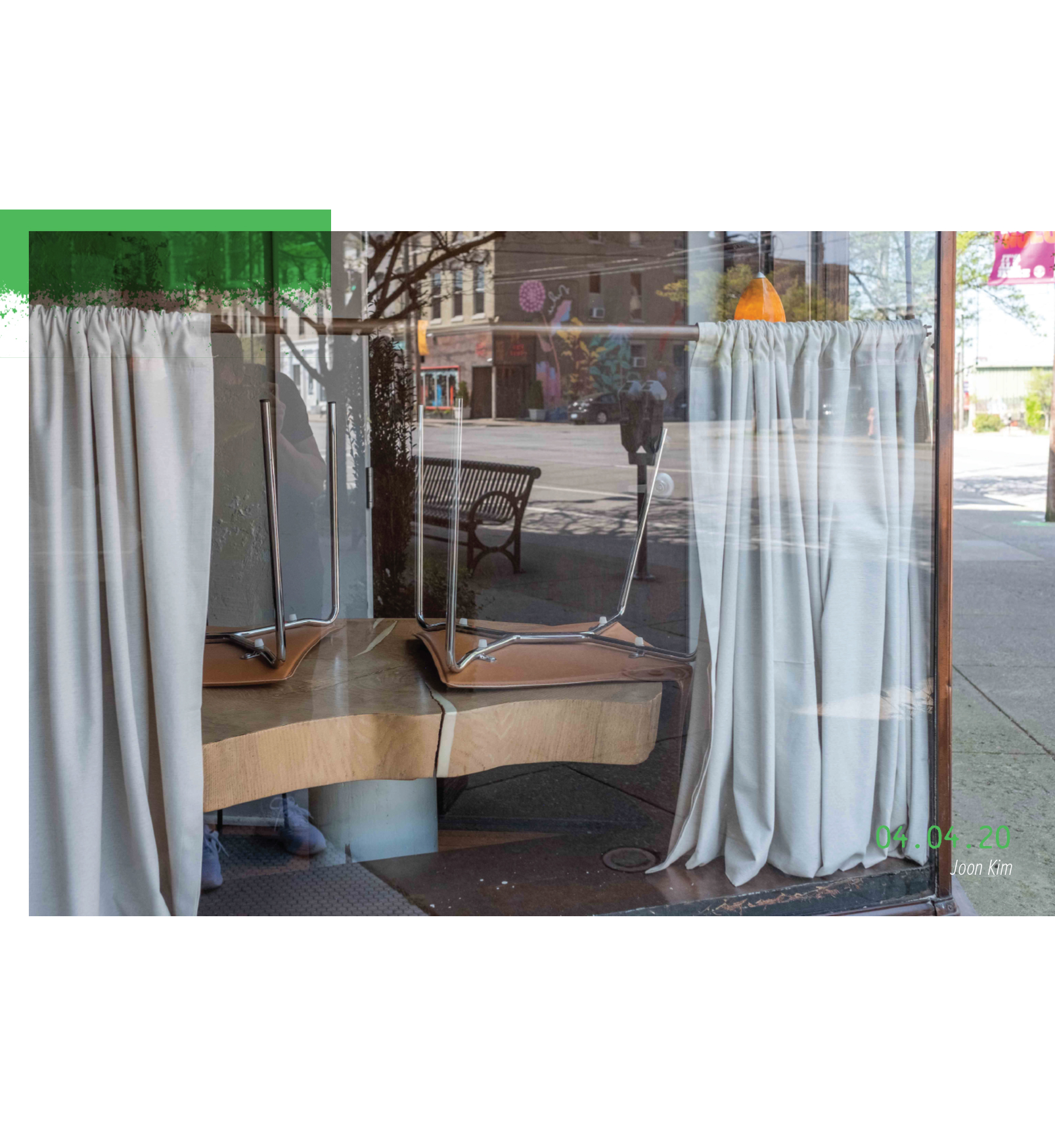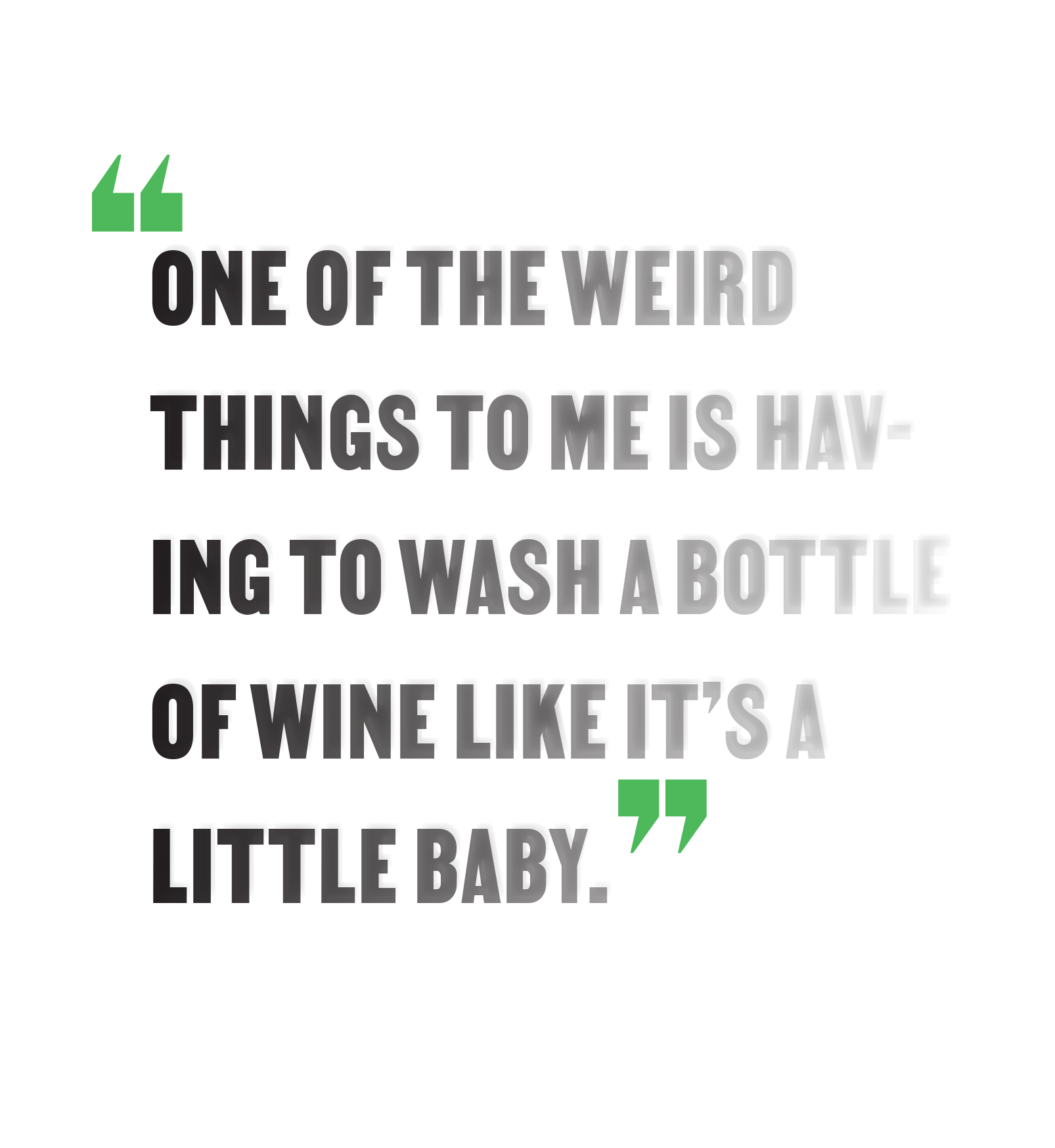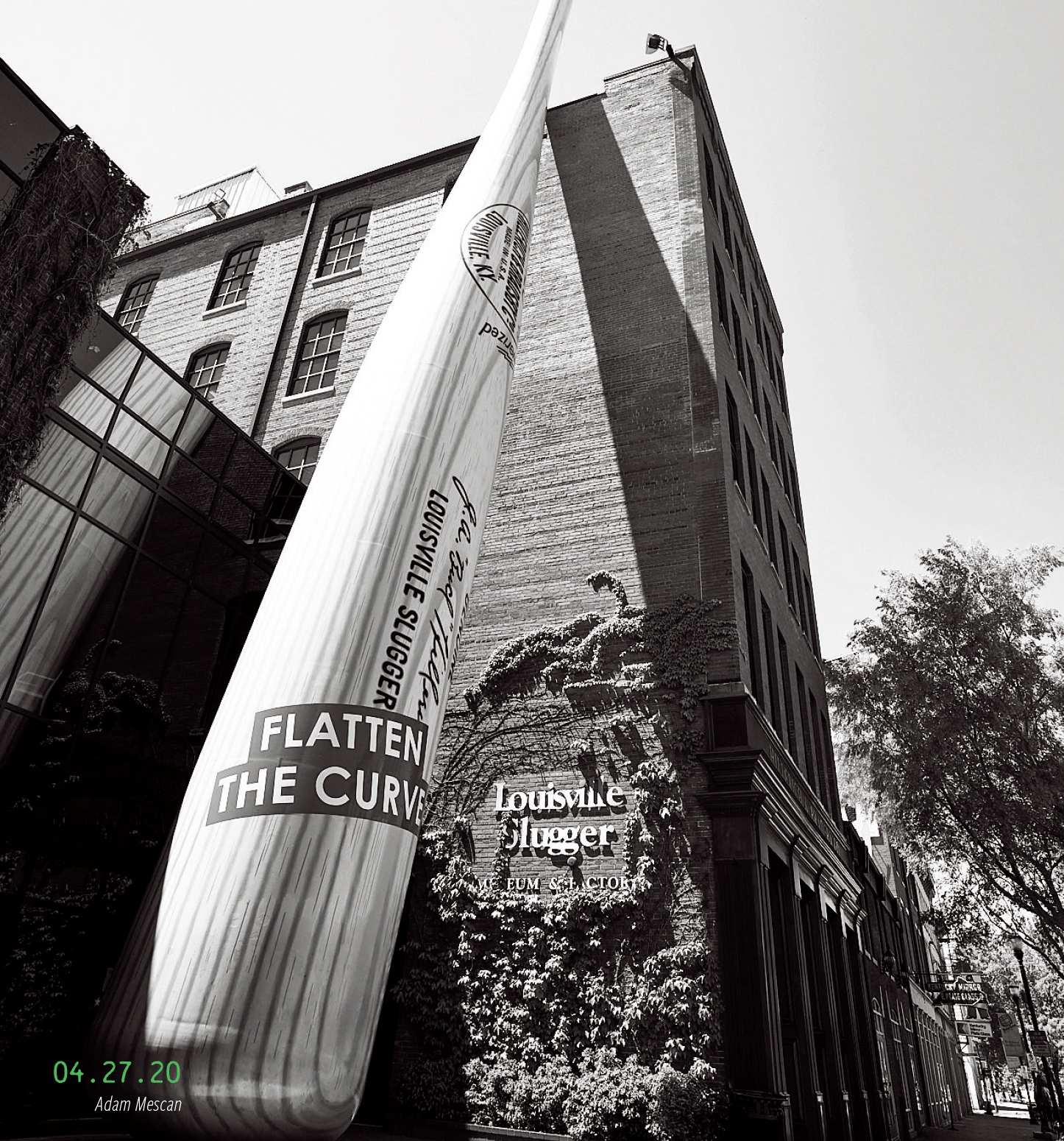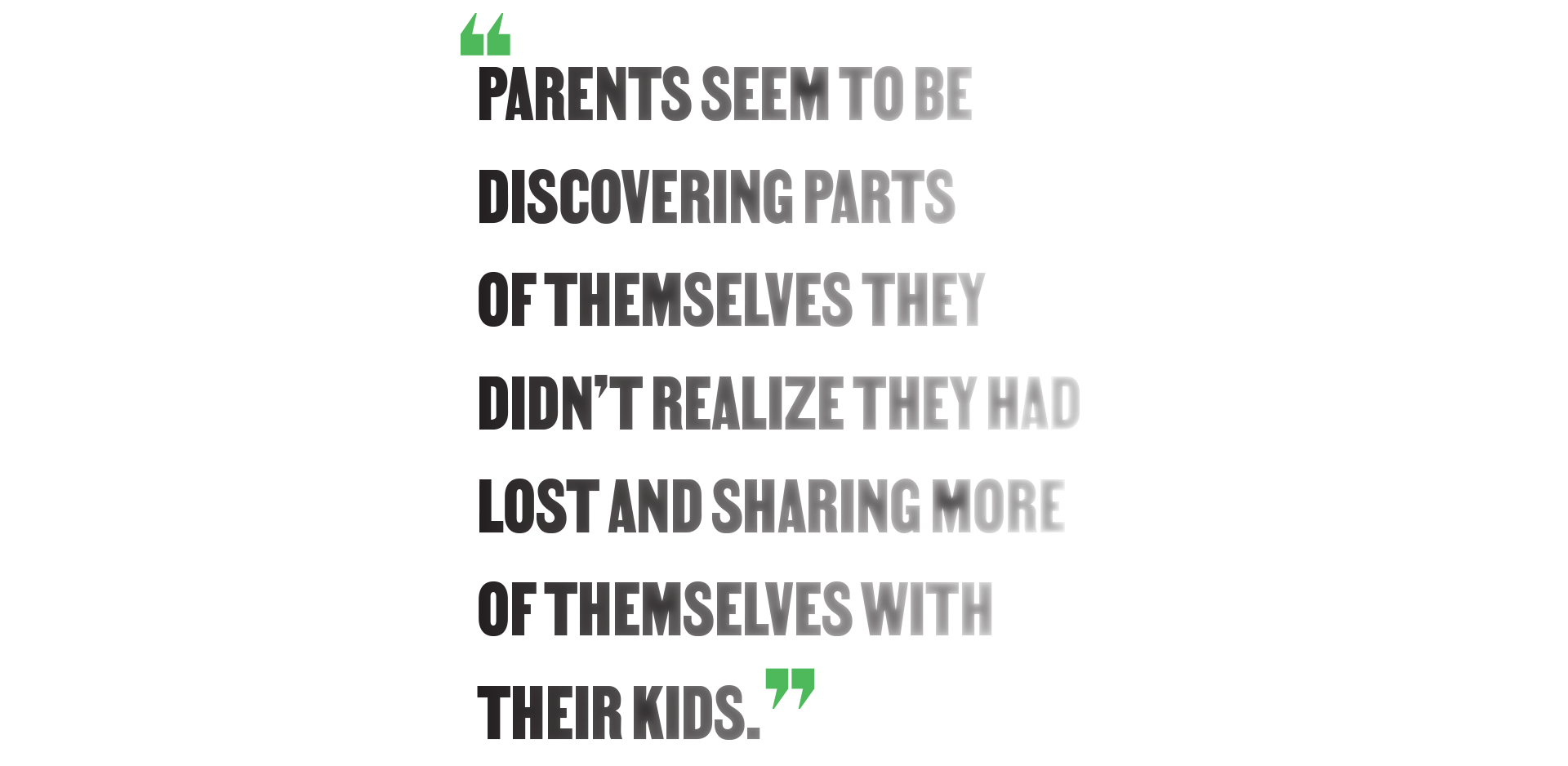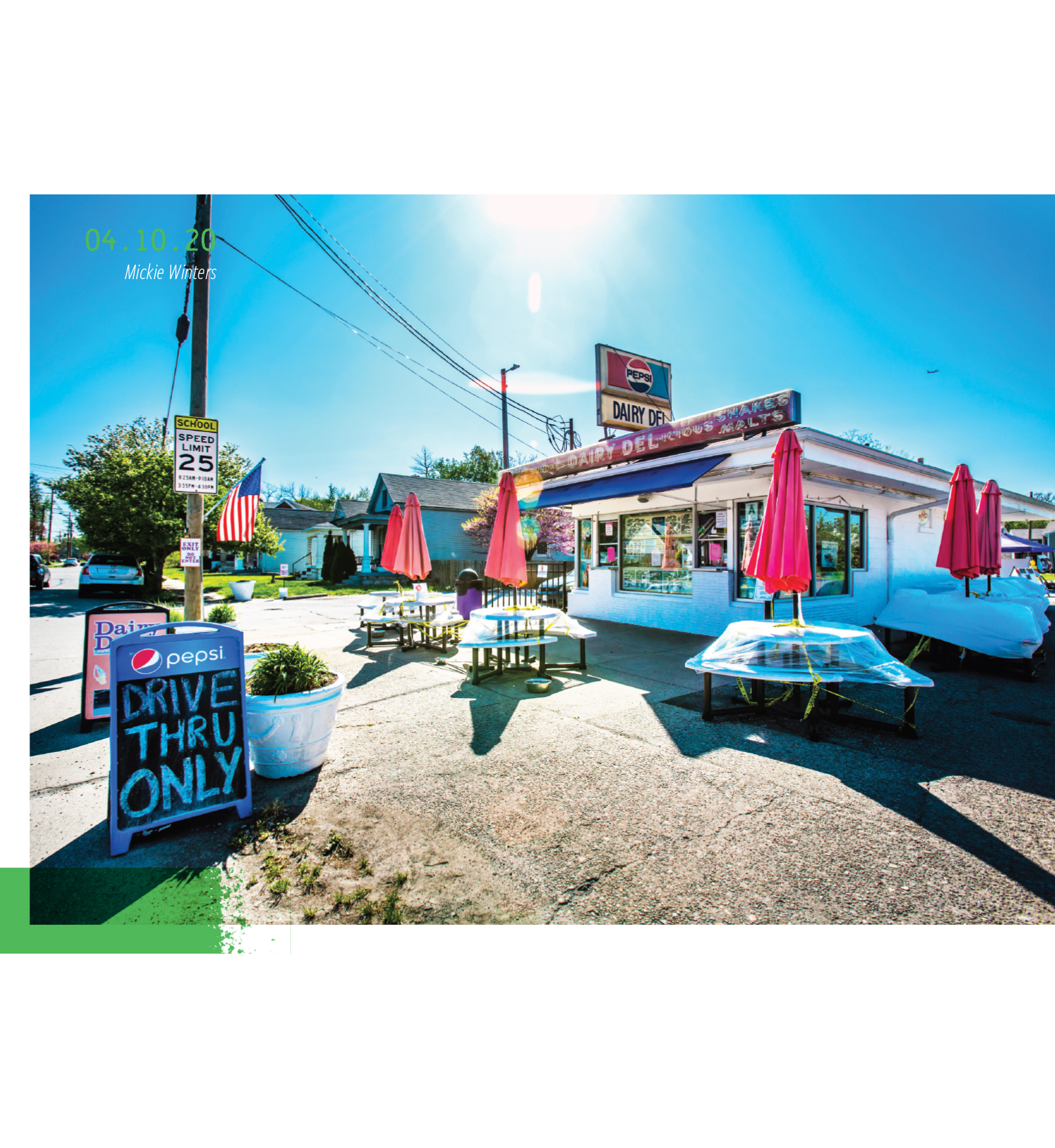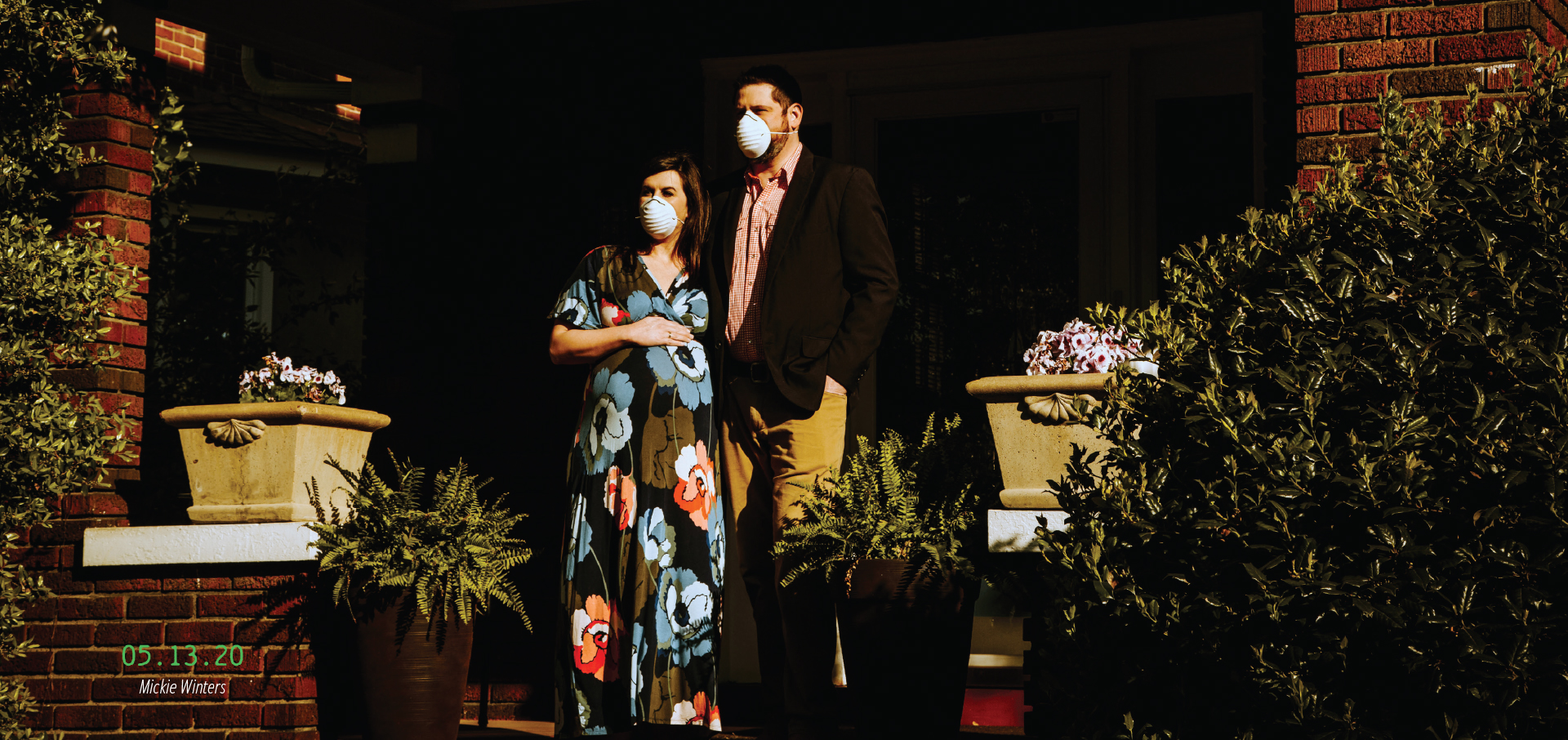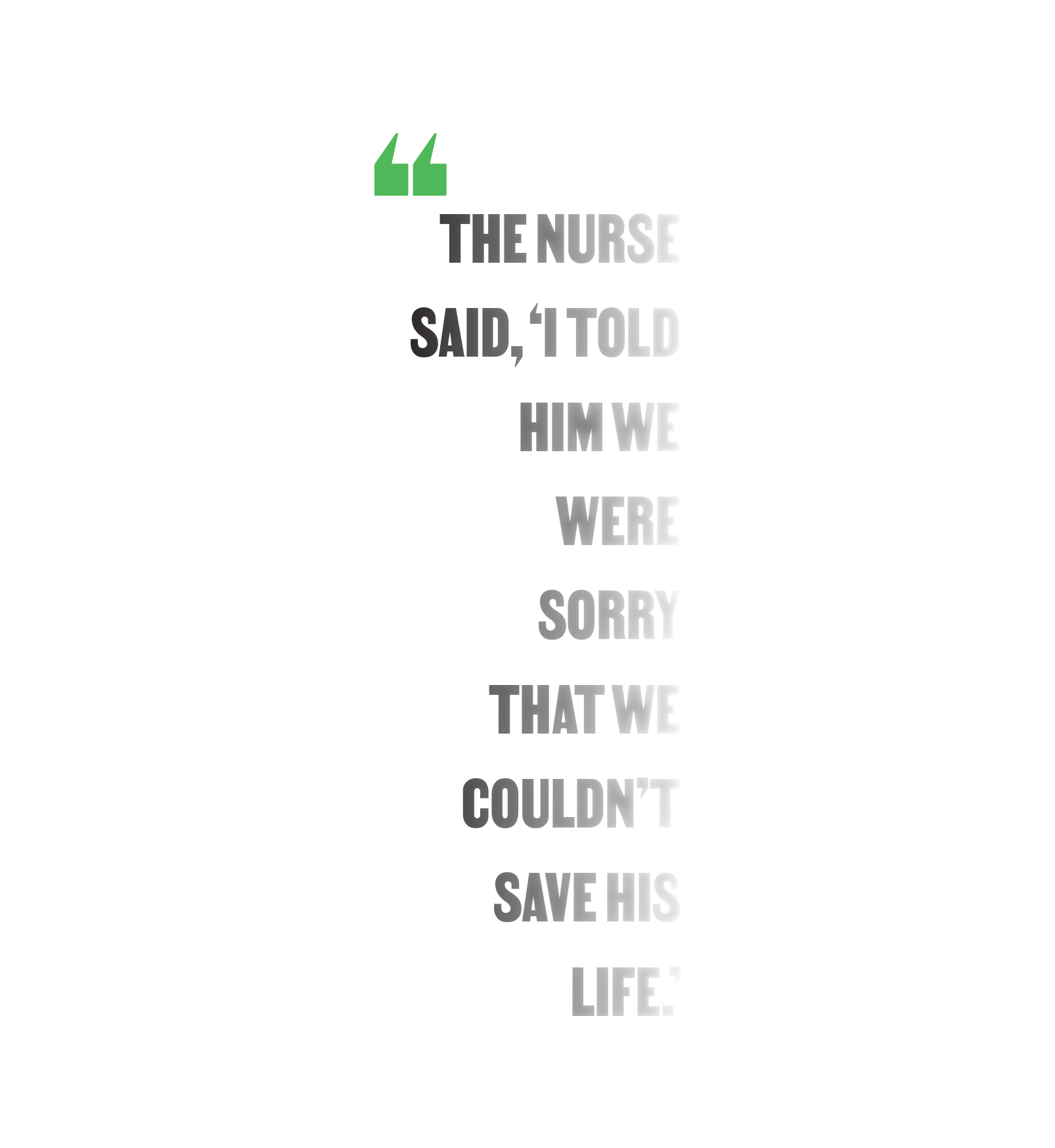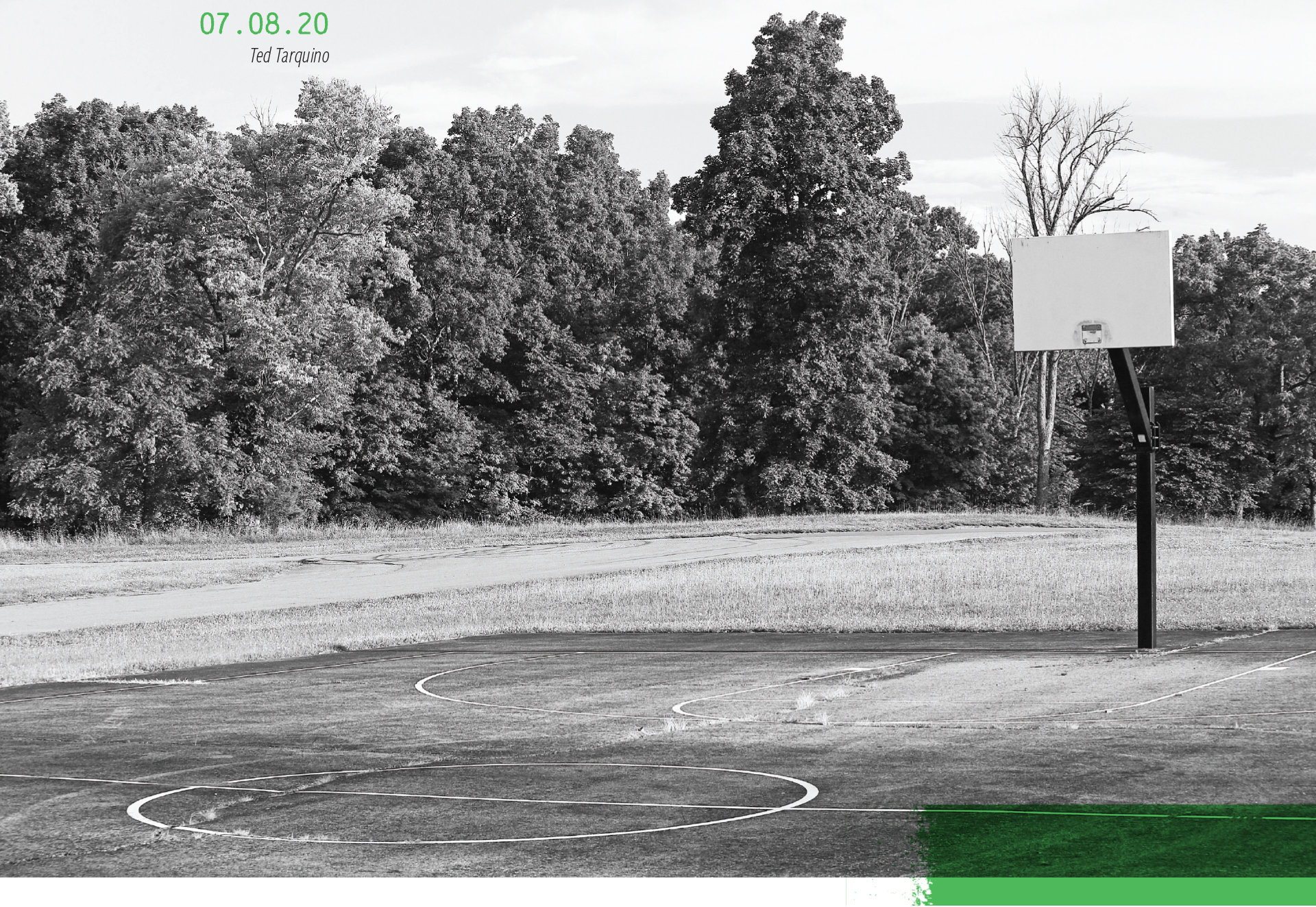INTERVIEWED 4.28
Julie Puckett, cafeteria manager at Doss High School, keeps kids fed.
Puckett’s job shifted to passing out pre-packaged food in front of Doss on Mondays, Wednesdays and Fridays, at one of dozens of feeding sites open for JCPS families to pick up breakfast and lunch. By the time of this interview, the district had served 675,000 meals.
“We have a lot of families coming through with six kids, so they’re really depending on us. I talk to them through their back hatches as I put food in. You hear everything. There are tears shed. There have been families who’ve come in and lost people to this virus. I’ve heard about parents losing their jobs in factories.
“Rain or shine. Mondays and Wednesdays are double-days — two meals per child. I’ll serve anywhere from 700 to 860 meals per day on those days. The younger kids love the Lucky Charms cereal for breakfast, but I think their favorite meal is Uncrustables peanut butter and jelly sandwiches. Even the high-schoolers, they love them. I know what they like, how they eat. In March, the kids don’t eat as much because the girls — they’re dieting, you know, they have prom coming on. And milk? That’s a good one. They won’t drink that in the hot months, but they love milk in the winter. Our kids love hot or spicy anything. They love the hot and spicy patties and hot and spicy wings. I wish I could go in there and cook some hot and spicy patties. I can imagine their faces. They’d be in heaven.
“When I’m sitting at my laptop at home, I have to blare the radio louder than I normally would because I just miss that noise of the cafeteria. It’s like having a house full of kids. The noise of it is peaceful to me.”
U.S. Rep. John Yarmuth
“There has never been an economic crisis that hit this country so broadly, so deeply and so quickly. Because even in the Great Depression, the stock market crashed in 1929, and the depth of the Depression was two or three years later. It was a precipitous event, but the impact on the economy and on people was more gradual. And this economic crisis from the pandemic was one that hit, basically, like a bomb. Immediate, and everything shut down within a matter of weeks. So we’re dealing with something that no generation has ever had to deal with. It certainly makes it difficult for policymakers to craft solutions.
“One thing that will change is, I think there are going to be far fewer business trips. I think businesses and organizations will say, ‘Hey, do we really need to fly people from all over the country into Louisville or Washington or Las Vegas? We can do these things remotely and save a lot of money.’ That’s going to have an impact on every local economy — on hotels, on airlines, on restaurants. The repercussions will be significant.
“I think one of the things I have become much more aware of — and I think the country probably has too — is how interconnected we are. And we lose sight of how important the person who delivers the groceries to the store is, and the person who stocks the shelves. And you begin to realize how integral their role is — and if they’re not there, so many things fall apart. It’s the small cog that, you take it away, and the machine breaks down. We’re seeing that on multiple levels.
“I don’t want to be too snarky, but I think Matt Bevin would have basically tried to pray it away.
“We’ve got a lot of people who are suffering, a lot of people who are having trouble getting food and paying their bills. So: Family first, then see how you can help others.”
INTERVIEWED 4.29
Carrie King, co-owner of HomePage Realty, sees a resilient market.
“The market is strong. Historically, if you’d ask the best time to sell a home, it’s Memorial Day, and you hope to sell it and be out and into something else by Labor Day. We’re still seeing homes that are going into multiple-offer situations, and the inventory is still very low. So we are still showing properties. However, we are now doing that in gloves and face masks and with Clorox wipes.”
INTERVIEWED 4.30
Adal Castellon Jr., owner of Spanish Fly Barbershop, misses his chair.
“March 18th we were ordered to shut down, but the fear of the virus had already set in, so my two barbers actually stopped a few days before that. But I kept going until the 18th at five o’clock. It was really daunting knowing your livelihood is going to be put on hold. Barbers, we serve as, like, therapists, but that last client was a friend and he was almost like my therapist. How am I going to keep myself afloat? I do have a really great landlord willing to work with me. One way I’ve been keeping sane is by going to clean the shop, which can open back up in about a month. And I did buy a bike which I’ll ride around Beechmont, just zigzagging the streets.
“I went from talking to like 10, 15 people a day to only talking to my wife and two kids. It’s been weird. When I do get a phone call or a porch visit, I feel like I talk a lot because I’m so used to talking to people and have so much bottled up. Now I spend like 40 or 50 hours a week just me and the kids. Our daycare lady, I told her, ‘I already appreciated you before, but I appreciate you so much more now.’ My wife and I were talking about how the kids will always look back at this time like, ‘Oh, dad was around a lot.’ My wife works for Wicked Sheets, and they have a never-ending order for masks because they have the capacity to make them. Thousands and thousands of masks.
“I long for those days when you can just go to the shop and shoot the shit.
“We’ve had people tell us, ‘My fade has faded away.’ If you’re gonna buzz your hair, leave the edges alone. People underestimate how sharp the smaller trimmers are.”
INTERVIEWED 5.2
Roger Huff, co-owner of Gallant Fox Brewery, sells out of growlers on his first weekend open.
“It’s hard to get to know my regulars when everything is to-go, and everyone is wearing a mask.”
INTERVIEWED 5.5
John (a pseudonym), an employee at the JBS Swift plant in Butchertown, loses pay to stay healthy.
By early May, nearly 60 employees at the JBS pork-processing plant in Butchertown had tested positive for COVID-19, and one employee had suffered a virus-related death. Nearly 1,200 workers at the plant slaughter and process 9,000 to 10,000 hogs daily. According to the Centers for Disease Control and Prevention, nearly 5,000 meatpacking plant workers in 19 states had tested positive for COVID-19 as of April 27. Hundreds of those cases were in Kentucky. John, who is originally from Cuba, had a relative serve as translator.
“JBS is mostly production lines. About 80 percent of the workers are Hispanic. We work quite close together, practically glued. The corridors are narrow, as wide as a pool table. People rub against each other as they walk through the corridors. I work as a forklift operator, and I examine meats. On April 4, I was working and started to feel sick. I had a cough, fever and sore throat. I didn’t know if there were people who had the coronavirus because there were many people who went home with symptoms. But I had no information of any kind.
“I went to the doctor and they told me I should quarantine in my house. If, by chance, I was short of breath, then I should call 911 to be taken to the hospital. I wanted a coronavirus test to be done, but for reasons unknown to me, my doctor’s office did not want to do it. I am concerned because I am a person who gets sick easily. I have bone problems and I have several medical problems. I practically spend the whole year with a cold because JBS is very cold. I don’t know if I could distinguish if it is the coronavirus or a cold because I am always sick. I decided to leave work April 6 to quarantine. It was unpaid leave.
“I watched on television that many old people were losing their lives. I was scared of being sick, of losing my life or spreading it to my daughter. All the workers who had a fever were sent home, but the company did not inform anyone if they had coronavirus or not. Since most of the workers are Hispanic, many do not understand news in English. They cannot read it. My daughter, who knows English, told me that there were several cases in JBS. She found out on WDRB.
“In the 13 years I have worked at JBS it has been the economic support of my family. I have never had problems with anyone. I have never been sanctioned in the workplace. I have good relations with the workers and all the supervisors and leaders. But regarding the coronavirus disease, I think the plant took a long time to take action.”
In a statement to Louisville Magazine, Cameron Bruett, a spokesperson for JBS USA, wrote, “We follow CDC guidelines. If someone who works for the company tests positive, while we cannot know where or when a team member has become infected, we inform all team members who may have been within close contact to the individual. Due to HIPPA requirements we do not share this broadly.” By mid-April, after John started feeling sick, JBS implemented protective measures like temperature checks, barriers between workers and extra sanitization. And in late May, JBS USA announced $200 million would go to factories like JBS Swift to pay for bonuses, extra cleaning staff and enhanced safety measures like ultraviolet light technology that can combat virus spread.
INTERVIEWED 5.7
Brooke Vaughn reimagines Please & Thank You’s business model.
“We opened our new Prospect location in November, which is one block away from the busiest Starbucks in the state. To be able to compete, we invested in an app that would let people order curbside, but it wasn’t getting traction when we opened. But with COVID, with just a press of a button, we went from curbside to curbside and delivery on our app, and we were able to launch it at all of our locations. It’s hard to say, because I’m such a fighter, but without the technology we probably would have closed the doors, rode it out for a few months and tried to reopen.
“Pretty much immediately we closed our location on Floyd Street downtown because that was basically there to service overflow of large events when our Market Street store is insane during Derby and Forecastle, plus the people who work at Humana and Atria nearby. I don’t think we’ll ever reopen that location.
“Before COVID, we tried to use local purveyors to sell us flour, butter and eggs, but it was always cheaper to go through a bigger company like Restaurant Depot. And now, with our volume and their unfortunate lack of sales because so many restaurants are closed, we’ve been able to get better pricing through local vendors.
“I already had delivery drivers on the road because of our commissary bakery in the West End. Now delivery and curbside account for about 75 percent of sales, with the rest from contactless walk-ups. This has transformed our business forever. We’re never going to stop delivery. Right when all of this started, I knew immediately that the best thing to do was to cut everything off the menu, minus coffee and cookies. For the past two years, our top five sellers have been: cookie, bag of cookies, dozen cookies, coffee, latte. And those are our best profit margins. We are moving about 8,000 to 10,000 cookies a week, plus about 300 cookie cakes. I’m never going to bring the menu back. We’re now a chocolate chip cookie bakery and coffee shop.”
INTERVIEWED 5.11
Ben Huffman, racing secretary for Churchill Downs, finds the quiet disquieting.
“I walked out from the paddock to the main track for the first races on the Saturday we opened. You know you’ve got the trainers and grooms spreading out on both sides of the tunnel there. But it was dead quiet. Just eerie not having the sounds of the racetrack and people cheering.”
INTERVIEWED 5.14
David “Dirty Dave” Johnson, attorney and lead singer of local punk band the Glasspack, looks “all crazy.”
“With my law practice, I have some divorce cases. I ran a Facebook ad a couple of weeks ago and the headline was, ‘Are You Tired of That MFer You’re Stuck Inside With Right Now?’ Everybody hit like and laughed about it, but there is a sad side to that too. I think there are probably people trapped in abusive, violent relationships stuck inside together. I’ve also had a lot of calls from people trying to come up with anything they can to get a case. People are running out of money and they are trying to think of ways to get more money. So I’ve seen people call me about probate matters or personal-injury cases.
“This is the third year of my law practice, and I was doing good before the coronavirus. I got a nice car for the first time in my life. Paid cash for it, no car payment. I kept working after the stay-at-home order, but today is the first time I got a paycheck in two months. Between Feb. 15 and March 1, that’s usually when I get a bunch of business, because people are getting their tax returns back. But everyone stopped calling. It completely shut down.
“One of the weird things to me about the coronavirus situation is having to wash a bottle of wine like it’s a little baby. I’ve been wearing a particle mask for drywall when I go out. When I go into the grocery store, everybody walks around me. I feel like I stepped out of a Mad Max movie. In general, I have that dirty look anyway. I put that mask on and, shit, I look all crazy. At first, I was wearing a bandana, but I was getting crazy looks at the liquor store. I’m not sure they wanted me in there like that.
“Now that I’ve started working more electronically, I feel that’s the way things are going to go — dealing with clients over the phone or email and filing stuff with the court electronically. I haven’t worn a suit since the beginning of February.”
INTERVIEWED 5.15
Mark Wourms, executive director of Bernheim Arboretum and Research Forest, watches nature bounce back.
“Because Bernheim is closed and it’s so quiet in the arboretum itself, nature has responded. We’re seeing coyote droppings all over the place. We’re seeing birds at ponds — green herons, for example, are coming to our ponds. And I hadn’t seen a green heron at those ponds for eight years, because there’s been so many people. Now I’m seeing them on a daily basis.
“We’ve got a phoebe nesting under our main bridge across one of those ponds, which on a normal day would be trampled across by hundreds if not thousands of people. And now, suddenly, the first time ever that I know of, we have a phoebe nesting there. So it’s been delightful in that way. Nature we’re caring for. Nature we’re connecting with. But we can only connect with people remotely.”
INTERVIEWED 5.18
Jack Mathis, co-owner of Work the Metal, gets social.
“Before quarantine, social media was important, but I always relied more on in-store sales. Now, I have been focusing on online sales with curbside pickup and shipping. It’s an area I needed to focus on in the past, but never actually spent time developing it until the virus took over the world.”
INTERVIEWED 5.19
John Dant, owner of the Back Door, remodels.
“I’ve been ready to open back up since day one. I’m not saying that there isn’t a pandemic, but we can’t live in fear. That’s my personal opinion. Some of the regulars are definitely ready to come. You kind of worry about it because of some of their ages, but I think the younger generation will be out. I do wonder if I’ll get my regulars back. I think eventually I will. I guess it depends on if they get a vaccine for this virus or not. I feel bad for the places that won’t reopen. Small businesses are the backbone of America, and I hope we all come back.
“My kitchen staff here doing curbside, they’re saints. They’ve stuck with me. They could have drawn unemployment, but they stuck with me, and I praise them for that.
“I’ve remodeled the whole bar inside. I only expected to be closed a few weeks — I thought this thing would pass. I ended up putting new floors in with what was supposed to be my operating cash. I decided to just go ahead and remodel the front room — new ceiling, new floors, new walls. Although I did keep the mural of faces — God forbid if I ever take those down!”
Ashley Nichole Sims-Cleveland, assistant teen librarian at the Newburg Library, worries for patrons.
“Filing unemployment over the phone is not easy. I’ve heard from people that they would be on hold all day. Then they’ll get in queue for a call back and wait a week. As soon as we closed to the public, we were getting calls from people about unemployment because the website doesn’t work on mobile browsers. Most of our patrons tend to only have cellphones, especially when you’re talking about Newburg, the West End.
“May 3 was the official furlough date, but that was a Sunday, so my last day was the Friday before that. We found out two weeks before that. There was a two-week period where we all knew we were going to get furloughed. It felt weird for that month that we were in the library with no patrons there. I am getting unemployment while I’m off, and the city is still covering their end of health insurance for full-time workers. Of course, there are quite a lot of part-time library workers. Absolutely everyone is worried this is going to go from furloughed to laid off.”
